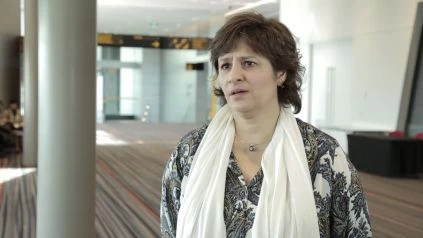Sharon Liberali, BDS (Adel), DClinDent (FICD, FPFA, FRACDS) of Adelaide Dental Hospital, Adelaide, Australia, discusses the role of dentist in treatment stages leading up to allogeneic stem cell transplantation. Dentists focus on identifying the risks of odontogenic-related infections that may potentially cause a febrile illness during the course of the chemotherapy. In the longer term, post-transplant dentists can identify issues around risk for patients, including risks around graft-versus-host disease (GVHD), dental decay and risks around new malignancies in the soft tissues of the mouth and the lips. It is very important patients receive a comprehensive clinical and radiographic dental examination before the transplant. Subsequent to the transplant, patients should maintain regular reviews with their dentist, particularly to assess GVHD risk. Patients have significant xerostomia, or reduced saliva production, creating issues such as dryness of the mouth, or increased risk of dental decay, which can be managed by the dentist. The overall message from Dr. Liberali is that the dentist needs to be part of the multidisciplinary team involved in the process of looking after patients, from the pre-assessment stage to the longer term care after the transplant. Recorded at the Multinational Association of Supportive Care in Cancer (MASCC) and International Society of Ocular Oncology (ISOO) 2016 Annual Meeting on Supportive Care in Cancer held in Adelaide, Australia.
[the_ad id="32629"]

